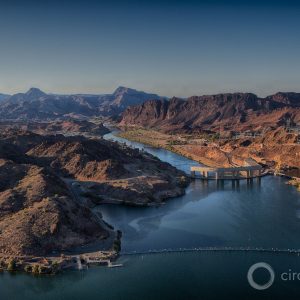The Stream, June 17, 2020: Methane Leaking from Millions of Abandoned Oil Wells Threatens U.S. Groundwater
The Global Rundown
Methane is seeping from millions of abandoned oil wells in the U.S., threatening groundwater supplies. A new study by Vanderbilt University finds multiple benefits to proactive home buyouts in flood prone areas. The Mekong River Commission (MRC) calls for China to be more transparent with its dam operations on the Mekong River. High water levels in Lake Michigan continue to eat away at coastal shorelines. A state audit finds that the Massachusetts Department of Environmental Protection failed to send vital reports about watershed safety to federal regulators.
“The failure to provide important information has left the public with a murky picture of water quality in the state. While the agency has taken some steps to address these issues, I urge them to continue to implement all of our audit recommendations.” –Suzanne M. Bump, the Massachusetts state auditor, in reference to the state’s failure to submit watershed safety data to federal regulators. The reports are required under the U.S. Clean Water Act, and are intended to provide information about watershed pollution to the public. The audit found that the state’s 2016 report was delayed by three years, and the 2018 report has yet to be filed. The Boston Globe
Latest WaterNews from Circle of Blue
HotSpots H2O: Water, Sanitation Services Face Shutdown in Yemen as Aid Funding Falls Short — Aid operations to offset the deprivations of war are at risk of collapse in Yemen as funding falters, the United Nations warned last week.
What’s Up With Water – June 15, 2020 — This week’s edition of What’s Up With Water includes coverage on the postponement of a desalination plant serving Sydney, Australia, changes in tap water consumption following the Flint water crisis, and a federal trial that could possibly end water fluoridation in the U.S.
By The Numbers
3.2 million Abandoned gas and oil well in the U.S. that leaked a total of 281 kilotons of methane, a greenhouse gas, into the environment in 2018, according to a recent report by the U.S. Environmental Protection Agency. The massive amount of methane seepage poses a variety of environmental threats, including groundwater and soil contamination. Reuters
20 times Amount that major flood events are expected to increase by 2080, according to data presented in a new study by Vanderbilt University. The study looks at potential damage mitigation through proactive home buyouts in flood prone areas, and found that the practice could provide financial benefits, reduce damages, and protect homeowners. A case study of the home buyout program in Nashville, Tennessee, estimates that every $1 spent on flood mitigation will provide $3 in benefits for the city. Vanderbilt University
Science, Studies, and Reports
On Tuesday, the Mekong River Commission (MRC), an intergovernmental organization which represents the interests of Laos, Thailand, Cambodia, and Vietnam, issued a statement calling for greater transparency from China over its dam operations on the Mekong River. In April, a U.S.-based monitor group Eyes on Earth published satellite data indicating that China had above-average river flow last year, yet withheld water from the lower Mekong nations despite worsening drought conditions downstream. In its statement, the MRC claims that timely and accurate data-sharing by China is necessary to help the lower Mekong nations plan for adverse conditions. AFP
In context: Severe Drought Tightens Pressure in Mekong River Basin.
On the Radar
Shorelines continue to give way along Lake Michigan, which is nearing record-high water levels. In Escanaba, which is located in Michigan’s Upper Peninsula, city officials say the water has begun to erode vegetation protecting beach areas, and is threatening to overtake the berm at the city’s municipal beach. Escanaba and other coastal cities are grappling with ways to maintain beach fronts and keep residents safe amid the rising waters. The Detroit News
Kayla Ritter is a recent graduate of Michigan State University, where she studied International Relations and Teaching English to Speakers of Other Languages. She is currently based in Manton, Michigan. Kayla enjoys running, writing, and traveling. Contact Kayla Ritter






Leave a Reply
Want to join the discussion?Feel free to contribute!